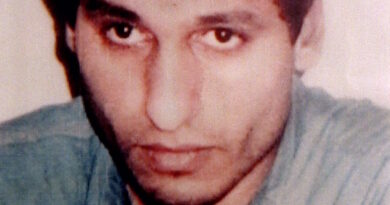Judicial reform brings Israel to the brink of fracture
EUGENIO GARCIA GASCON
The deep political and judicial crisis has already caused tremendous damage, anxiety and uncertainty in a society immersed in the greatest crisis in its history. The damage is done and we still do not know if the hatred that is chewed in the country is irreversible or if society will be able to heal. The images of the protests taking place in the streets of Tel Aviv have only been seen in the occupied Palestinian territories.
In any case, things will most certainly not return to the way they were running until January 4, when, at the behest of Benjamin Netanyahu, Justice Minister Yariv Levin launched a far-reaching judicial reform and to the Netanyahu measure. Since then, the Knesset has passed laws that upend the judicial system, which with few changes has been in place since 1948.
The media have intensified warnings in recent days that the reform is causing a dangerous security and strategic situation. Sometimes they are officials from the government coalition or from the opposition who, without hiding their names, denounce the dangerous transformation, but most frequently they are responsible for security, that is, the Army, the secret services for the interior or Shin Bet, and the foreign secret services or Mossad who formulate apocalyptic statements, hiding the name.
According to these warnings, enemies are taking advantage of the crisis to weaken the Jewish state, which has largely lost its deterrent capacity. One of the most tangible examples occurred just a few days ago, when a commando infiltrated from Lebanon to carry out an operation in the Galilee and was killed when he wanted to return to Lebanon. A few days later, the Army released confusing details of this operation that the military described as unusual. From Lebanon, the leader of Hezbollah, Hasan Nasrallah, clarified that he was not going to claim responsibility for the attack, since with his silence he was increasing the psychological warfare against Israel.
It has not been the only thing that has undermined Israel's regional position. The recent normalization agreement between Iran and Saudi Arabia signed under the mediation of China has fallen like a jug of cold water and has given rise to endless statements questioning Netanyahu's foreign policy. The obvious bad relations between the Prime Minister and President Joe Biden are pointed out as the source of a new map of forces in the Middle East to the detriment of the Jewish state. To add fuel to the fire, security officials warn that Iran is two weeks away from making enough enriched uranium for the bomb.
Iran is one of the fundamental pillars of Israel's foreign policy, which has been careful to create fear among Arab countries by brandishing an existential threat from Tehran. However, the normalization of relations between Iran and Saudi Arabia, and the rapprochement of the United Arab Emirates and Egypt to Tehran disrupts this axis of Israeli foreign policy. Netanyahu will no doubt try to reverse the situation, but there is a growing impression that the proverbial fear of Iran has disappeared from Arab countries, which follows from such approaches eroding Tel Aviv's leadership.
Netanyahu is bound to spend more time solving those problems than foreign policy. Army reservists announced that they would not respond to the draft, at least until the judicial reform was halted. This Monday night Netanyahu halted the reform and the general strike was immediately called off. Military officials warn that the discontent of the reservists is an upward trend that endangers the operation of the armed forces. The head of Defense, Yoav Gallant, who warned of this danger, was dismissed by Netanyahu on Sunday, although the dismissal letter had not yet reached him on Monday night.
The significance of what is happening goes beyond Israel, as the country has often been a few steps ahead of the West on certain issues. In reality, the crisis is similar to that of the United States, where Democrats and Republicans constitute two opposing halves, unwilling to negotiate with the other half and with growing sectarian hatred. Netanyahu's coup of authority, like the one that Donald Trump wanted to give, questions the foundations of liberal democracy that until recently were not discussed, but that are now questioned by part of the Western population, processes that are also taking place in Europe.
For some politicians and analysts, this division is pointing to a civil war. He has said it to the president of Israel on more than one occasion. Everything will depend on the direction that is taken from now on. Some of the questions in the air are the following: Will Netanyahu be able to reverse the crisis by halting the reform? Is there a real will for consensus in society? Will Israel regain its deterrence? Will it be possible to agree on the judicial reform with the opposition? Will popular frustration end? How long will the crisis last? It will be necessary to wait for the answers, but what seems certain is that Israel will not return to the prevailing situation until January 3, the day before the Minister of Justice launched the reform. Things have changed and they will not go back to the way they were, whatever direction they take.
Eugenio Garcia Gascon has been a correspondent in Jerusalem for 29 years. He is a Cirilo Rodríguez journalism award winner.













